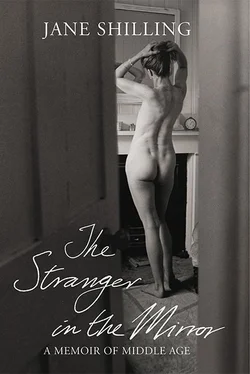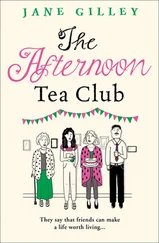Would this be a better ending than Colette’s premonition? Although I was disturbed by the changes I felt in myself, and reluctant to admit that the process of post-menopausal masculinisation had already begun, I found a sense of recognition – almost of exhilaration – in the defiance of Léa and the Wife of Bath.
In more conventional narratives of middle-aged love – the libretto of Der Rosenkavalier , say, or the screenplay of The Graduate – the loss or renunciation by a middle-aged woman of her much younger lover is presented as a form of expiation or punishment for her ‘sin’ in seducing him. But the Wife and Léa defy convention with a passionate individualism: a determination to shape for themselves the narratives of their middle years, rather than dwindling into the roles that convention prescribes for them.
Their intelligent willingness to taste the strangely compromised flavours of middle age – the bitterness of menopausal experience: the scandalous emptiness of children not borne, lovers not seduced, beauty vanished, the power to please withered, the inevitability of death; and mixed with it the sweetness of seizing the opportunities that survive; the pleasure of an orderly, settled life, self-knowledge and formed tastes, as well as what remains of the wilder joys of love and sexual exploration – hints at a state of mind more complex and durable than mere happiness – or at any rate, of more use as a shield against the diminishments of old age. Happiness is a gift; a matter of luck and circumstance. You can’t practise it, or acquire it by force of will. Composure, on the other hand, you can.
‘Immunity…’ wrote Virginia Woolf, aged 50. ‘To be immune, means to exist apart from rubs, shocks, suffering… to have enough to live on without courting flattery, success… to be mistress of my hours… Immunity is an exalted calm desirable state, & one I could reach much oftener than I do.’
Woolf was already working on To the Lighthouse when she began writing Mrs Dalloway . In the central characters of her overlapping novels she captured the contradictory emotions of middle age: the blurring of the present with memories of the past and foreboding for the future; the perception that strikes Mrs Ramsay as she serves her daube that there is ‘a coherence in things, a stability; something [that] is immune from change’; the feeling that one is the person that one has always been, but at the same time changing irrevocably into someone quite different.
Mrs Dalloway, Woolf writes, ‘felt very young; at the same time unspeakably aged. She sliced like a knife through everything; at the same time was outside, looking on. She had a perpetual sense… of being out, out, far out to sea and alone; she always had the feeling that it was very, very dangerous to live even one day.’
The internal reveries of Woolf’s heroines are built on a sturdy armature of their position in society, to which they are attached by ligatures of love and friendship. They are matriarchs: mothers, wives, hostesses; objects of desire and affection, fecund, benevolent. In a way, they can afford the luxury of speculative fragility. Their apprehension of the perilous amorphousness of the middle years spoke eloquently to me, but I lacked their resonant, almost grandiose, sense of entitlement. My own experience of mid-life felt thinner, more contingent than theirs.
In 1958 Angus Wilson published The Middle Age of Mrs Eliot , in which he imagined the fate of a middle-aged woman stripped of the traditional trappings of female dignity. His heroine, Meg Eliot, is a woman of substance: courted, admired, the darling of charitable committees, and a benevolent friend to her flock of lame ducks – single women of a certain age with less fortunate lives than her own. But when her husband dies suddenly, she undergoes a baleful metamorphosis. The change is not simply a matter of loss and grief; not even a question of identity, although she has no children or job to support her newly bereft sense of self. The real shock is her social demotion from a person of consequence to someone who effectively doesn’t exist.
Wilson compares Meg Eliot’s dilemma with that of her brother, David, who is homosexual. Homosexual himself at a time when it was still illegal, the novelist was well acquainted with the feeling of belonging to a despised and invisible group. Historically, the position of middle-aged women, particularly those not attached to a man – widows or spinsters – had been ambiguous, compromised, uncertain. But not invisible. However unenviable their state, the Miss Bateses and Miss Mattys, the maiden aunts and dowagers and shrews and grandes dames and adventuresses of a certain age were still a formidable presence in their families and communities.
Until the mid-twentieth century they are an indispensable part of literature. Fiction swarms with them. Plots revolve around them. Younger characters tell them their secrets, court them for the legacies they might bestow, pity them, dread turning into them – and sometimes even marry them. But then comes Angus Wilson’s premonition of middle age as a form of exile; a solitary deviation whose only solace is a lonely self-knowledge, hard won after heroic emotional struggle. And after that, in 1966, comes Dr Robert Wilson’s Feminine Forever , the bestseller that would convert middle age from a stage of life rich in ambiguity and nuance into a curable medical condition.
The project of finding a remedy for the symptoms of the menopause and restoring ‘femininity’ to ageing women had fascinated physicians for centuries. Many before Dr Wilson had experimented with hormonal therapy on their menopausal patients. His particular distinction in the field was arguably not so much medical as literary: by synthesising the factual language of science with the flowery emotional hyperbole of romantic fiction, he produced an account of middle age as a transformation narrative from youthful femininity into ‘castrate’ and – thanks to the magic of oestrogen therapy – back again that would prove extraordinarily seductive to women throughout the decades to come.
It is puzzling that fiction, traditionally the realm in which women felt most free to describe themselves, should fall almost silent on the subject of the middle years, and doubly strange that it should do so at a point in literary history at which women’s writing about their own lives became richer and bolder than ever before.
If it had worked as its advocates envisaged, HRT should have resulted in a great flowering of the literature of middle age. With all the traditional benefits of the middle years – freedom from child-rearing, a formed character, the competence and confidence that only decades of experience can bestow – combined with liberation from the physical effects of the menopause, middle-aged women ought to have become unstoppable. You might have expected that from their resurgence would spring a body of work at least the equivalent of the passionate twentieth-century love affair with their own experience of middle-aged male writers.
The sense of the middle years as a period of life whose task is to grapple from the hostile void of time some evidence of reality, some permanence, some tangible proof of having existed, became a rich source of inspiration to male novelists of the twentieth and early twenty-first centuries: from John Updike to Martin Amis, they roamed the labyrinth of the ageing male psyche, recording the wonders they found there.
But the great swell of younger women’s fiction that emerged from the social and sexual liberation of the 1960s was not accompanied by an equivalent portrait of a rejuvenated and invigorated generation of middle-aged women. It is as though Angus Wilson’s vision of the middle-aged woman as an unperson was a premonition of an age of anxiety – or denial – that began with the ‘liberation’ of women from their sexual destiny.
Читать дальше












